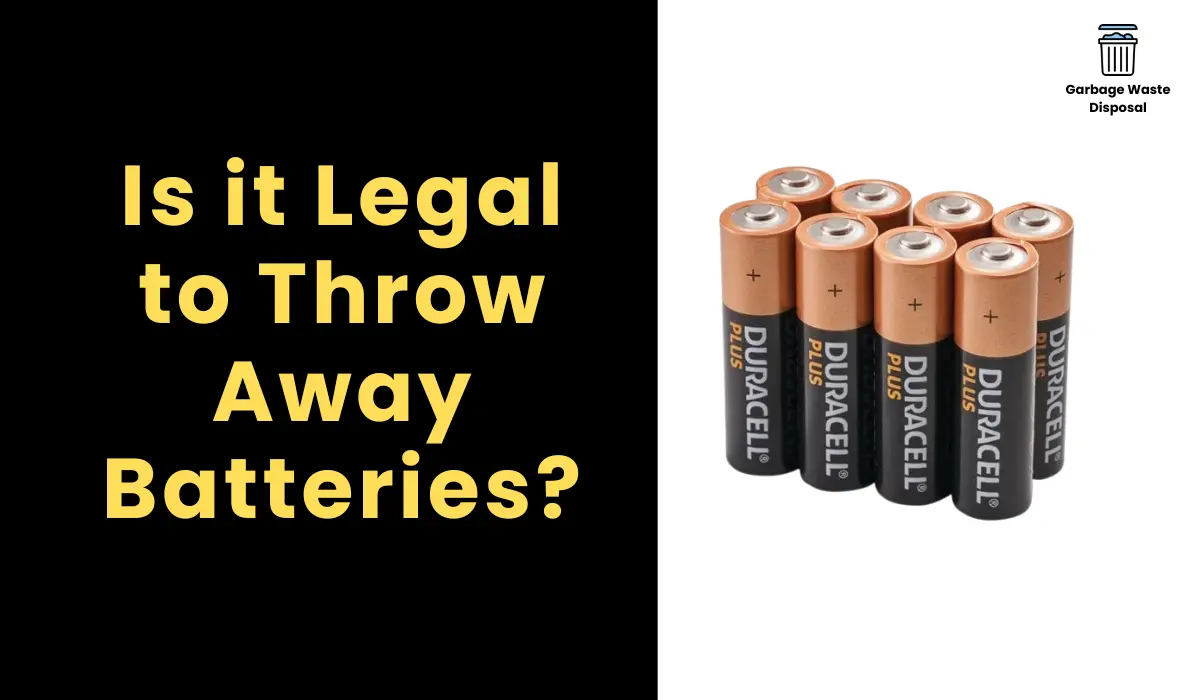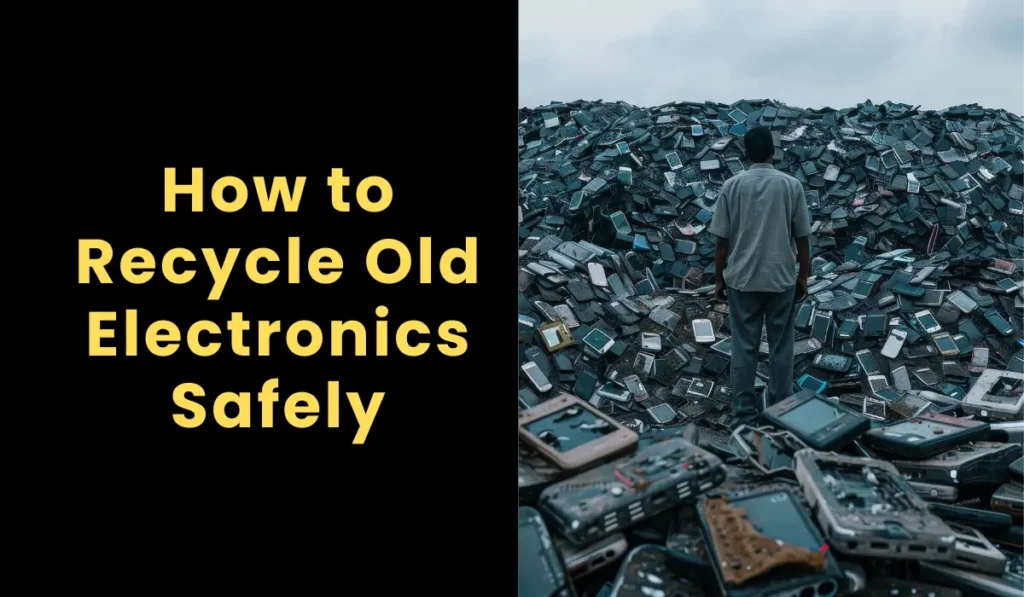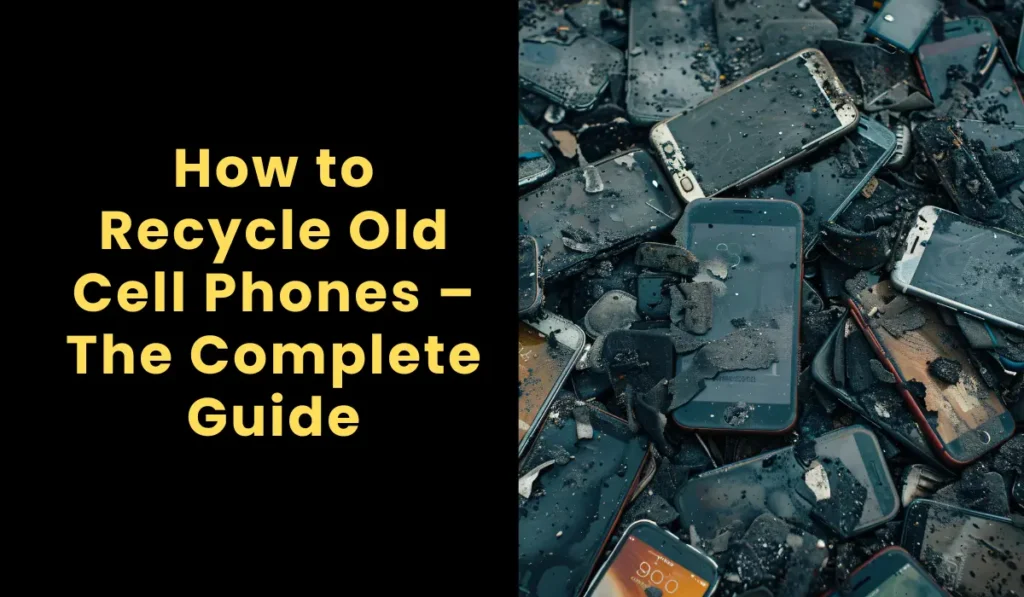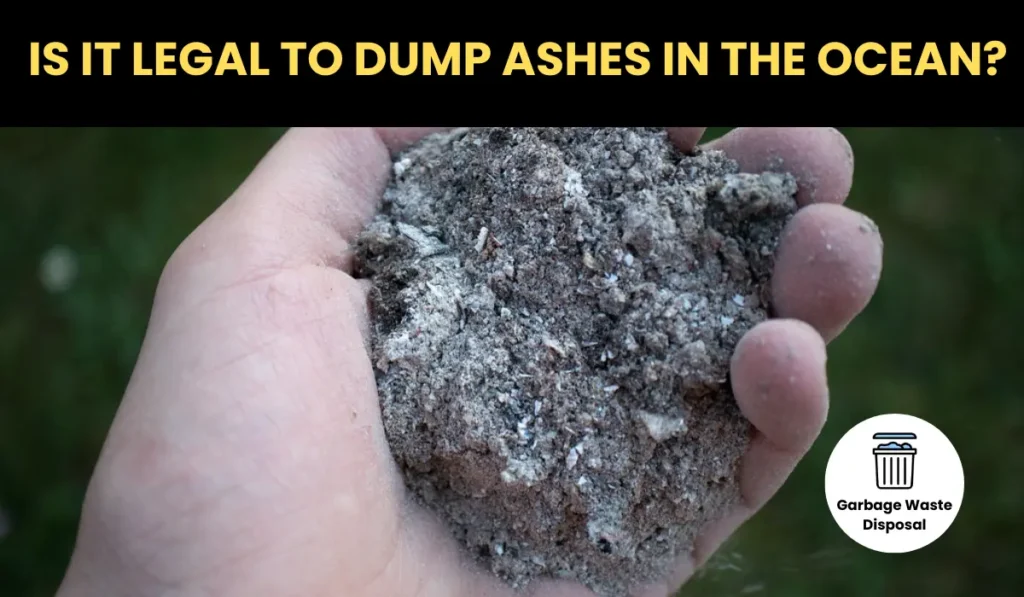Is it Legal to Throw Away Batteries?
Many people wonder, is it legal to throw away batteries, without realizing how serious the answer can be. The truth is — in most U.S. states, it’s illegal to throw batteries in the trash, especially rechargeable, lithiumion, and car batteries, because they’re considered hazardous materials. Tossing them away can cause environmental pollution, fires, and contamination of soil and water through heavy metals (lead, mercury, cadmium).
Understanding battery disposal laws helps protect your health, community, and the planet. Whether it’s your TV remote or car battery, knowing how to dispose of batteries properly matters. This guide explains when it’s legal, when it’s not, and the safest way to handle every type of battery.
What Are the Different Types of Batteries?
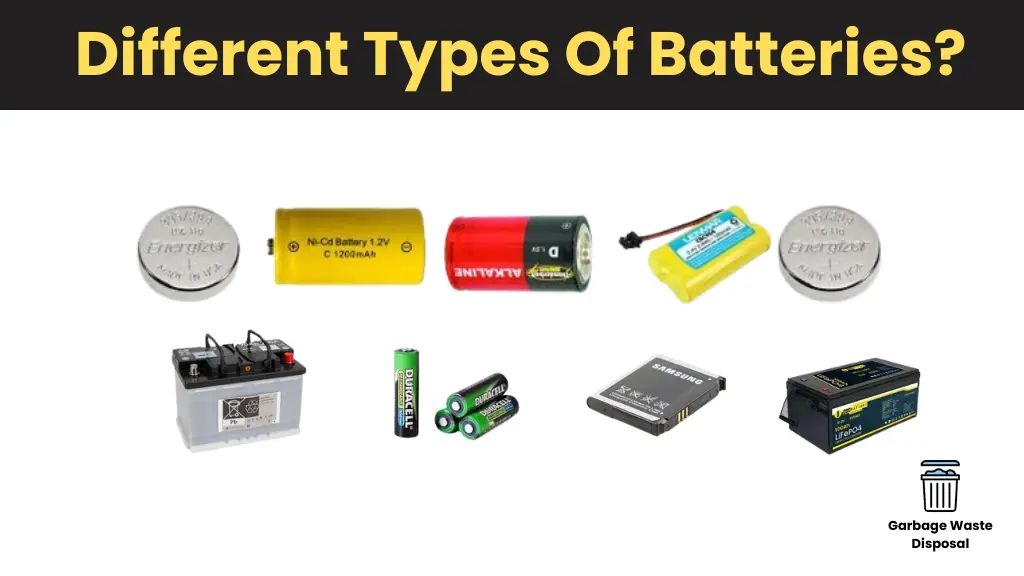
Different batteries come with different rules. Let’s look closely at the most common ones used in American homes and workplaces.
Alkaline / Zinc-Carbon (AA, AAA, C, D, 9V)
These are the everyday batteries used in remote controls, flashlights, and toys. In most U.S. states, they’re not classified as hazardous materials. According to the EPA battery disposal guidelines, alkaline batteries can usually be discarded in household trash. However, some local governments prefer recycling them through recycling programs because they still contain heavy metals (lead, mercury, cadmium) that may cause landfill contamination.
Rechargeable Batteries (Ni-Cd, Ni-MH, Li-ion)
These batteries power laptops, phones, and cameras. They’re known for their lithium-ion fire risk and must never be thrown in regular trash. They contain chemicals that can leak or explode. Under federal law, they’re considered hazardous materials, and throwing them away in household waste is illegal. Many retailers follow battery recycling regulations, offering free collection bins for safe disposal.
Automotive & Lead-Acid Batteries
Car batteries are a classic example of hazardous waste. They contain lead and acid, making them extremely toxic to humans and wildlife. Federal law requires these to be recycled through auto shops, waste collection centers, or recycling facilities. In fact, most states ban their landfill disposal entirely.
Button / Coin / Battery Cells (watches, remotes)
These tiny batteries are small but mighty polluters. They often contain mercury and silver oxide—both toxic waste substances that pose risks to soil and water. Always deliver them to a proper drop off point or battery recycling center.
Legal Landscape – Is It Legal to Throw Away Batteries?
Federal / National Level (U.S.)
The EPA battery disposal guidelines under the Resource Conservation and Recovery Act (RCRA) govern battery waste across the nation. The law classifies certain batteries as hazardous materials and restricts them from landfills. Alkaline types may be allowed, but lithium, nickel-cadmium, and lead-acid batteries must be recycled.
Federal agencies emphasize safe disposal practices and recommend that consumers use recycling programs or battery drop off locations near me services offered by major retailers and municipal centers.
State / Local Regulations
State laws differ dramatically. California, New York, and Vermont, for example, treat all batteries as electronic waste (e-waste) and prohibit their disposal in household trash. Many states offer their own recycling facilities and waste collection centers to manage safe battery disposal. Always check local rules before tossing any battery, as battery disposal rules by state / country can vary.
Key Takeaway: “It Depends”
Whether throwing away batteries is illegal depends on where you live and what type of battery you have. It’s always safer and often required to recycle.
Why the Legal Restrictions Exist
Environmental Risks
Improper battery disposal contributes to environmental pollution and landfill contamination. As batteries break down, heavy metals (lead, mercury, cadmium) seep into soil and groundwater, poisoning ecosystems. The EPA warns that these pollutants can harm fish, plants, and people for decades.
Fire & Safety Hazards
The growing use of lithium batteries has increased fire incidents. When crushed or punctured, they ignite easily, putting sanitation workers and communities at risk. The lithium-ion fire risk is one major reason for strict battery recycling regulations.
Resource Recovery & Recycling
Batteries contain valuable materials like nickel, cobalt, and lithium. Recycling them conserves natural resources and supports sustainability. Proper recovery processes at certified recycling facilities also reduce mining demand and protect the environment.
How to Know If You Can Throw a Battery in the Trash
Check the Type
The first step is recognizing what kind of battery you have. Alkaline may go in household waste in some states, but rechargeable or lithium-ion batteries can’t. When unsure, assume it’s hazardous waste and recycle it.
Check the Local/State Law or Authority
Different areas enforce distinct municipal waste laws. Check with your local government or visit local recycling batteries services platfforms to find accurate information on where to recycle used batteries.
Best Practice: When in Doubt, Recycle
Even if local law allows certain batteries in the trash, recycling remains the proper way to dispose of batteries. It protects communities from toxic waste and promotes eco-friendly habits that benefit everyone.
Safe Disposal & Recycling Options
Household Drop-Off Programs / Retail Take-back
Many U.S. retailers like Home Depot, Lowe’s, and Staples participate in recycling programs for batteries. These battery drop off locations near me make it convenient for households to discard safely.
Mail-in or Collection Kits
Mail-in programs are gaining popularity for household battery disposal. You can order kits online, fill them with used batteries, and send them for recycling.
Automotive & Large Batteries
Auto shops are legally required to take back lead-acid batteries. They transport them to licensed waste collection centers, where professionals neutralize the acid and recover metals.
Safe Storage Before Disposal
Before recycling, tape the battery terminals and store them in cool, dry places. This simple action prevents short circuits and fires, ensuring safe disposal practices at home.
What Happens If You Throw Batteries Away Illegally?
Ignoring battery disposal laws can result in heavy fines. Businesses caught discarding batteries illegally face lawsuits and cleanup costs under federal environmental statutes. Beyond legal penalties, the environmental price is severe. Improper disposal increases environmental pollution, harms wildlife, and contaminates water supplies.
In some U.S. states, fines for illegal disposal can reach thousands of dollars. So the answer to what happens if you throw away batteries is simple: you could face penalties, cause fires, and harm the planet.
Global and International Context
Globally, many countries have strict battery waste management systems. The European Union’s Battery Directive bans the landfilling of most batteries and requires manufacturers to fund recycling programs. Canada, Japan, and Australia follow similar legal battery disposal methods, emphasizing producer responsibility and public awareness. The U.S. continues to strengthen recycling programs and promote sustainability through partnerships between governments, businesses, and consumers.
Conclusion
So, is it legal to throw away batteries? Sometimes yes—but usually, no. The rules depend on your state and the battery type. Following EPA battery disposal guidelines and local municipal waste laws keeps you compliant and helps prevent environmental pollution.
The next time you replace batteries, don’t just toss them away. Instead, use recycling programs, locate battery drop off locations near me, or ask your local waste center for instructions. Adopting eco-friendly habits ensures that the energy we use today doesn’t harm tomorrow’s world.
FAQ’s
The Author

Muhammad Nabeel Dar has worked in the waste management industry for over 10 years, specializing in residential waste systems and kitchen efficiency solutions. He writes about practical home improvements, cost-effective appliance choices, and sustainable waste management practices that help homeowners make informed decisions. His hands-on experience with both commercial and residential waste systems provides unique insights into what actually works well in real-world home environments versus what just sounds good in marketing materials.

